
Opinion
These are the editorial team's favourite films of 2025
by Luca Fontana

Millions of viewers are streaming Monster: The Ed Gein Story right now, watching a man’s descent into madness. But the truly disturbing thing about the series isn’t what happens on screen – it’s what it awakens inside of us.
Wisconsin, 1957. In the barn of a taciturn farmer, police discover something that stuns even experienced investigators into silence. Decapitated bodies, gutted like game. Vests made of skin, nipples still attached. Bowls made of skulls. Masks made of real faces. Internal organs simmering in a pot on the stove.
The name of the farmer? Ed Gein.
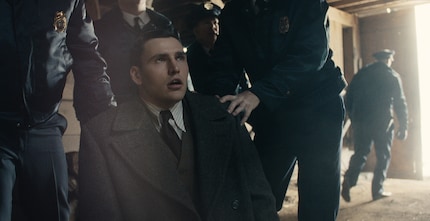
The things he’d done in the years running up to this grisly discovery were unimaginable. He’d plundered graves, dissected body parts and made furniture, lampshades and entire costumes out of corpses. Later, he was proven to have killed two people, but it’s suspected there were more victims. More atrocities that made him one of the most notorious figures in US criminal history.
Although Gein was convicted, he was never executed. Deemed mentally incompetent, he spent the rest of his life in a psychiatric hospital. But his shadow remained, inspiring iconic horrors such as Psycho, The Texas Chainsaw Massacre and The Silence of the Lambs. Today, almost 70 years later, Netflix is telling the story anew. And millions of people, myself included, are watching it.
Some scenes make me grimace in disgust, continuing to haunt me minutes after they’re over. Nevertheless, I can’t help pressing «Next episode» and inviting in a new wave of pure horror every time the credits roll.
Why do I do this to myself?
Why do we do this to ourselves?
Maybe the truly disturbing thing isn’t «what» we’re watching, but «how» we’re watching it. Series like Monster don’t just show us evil from a distance. They come so close to it that we can almost feel its breath.
In Netflix’s latest edition of the series, we see a young Ed Gein being tormented by his fanatically religious mother. We see him as a broken, lonely man with no understanding of the world – and in turn, a world with no understanding of him. Then, suddenly, something happens that unsettles me more than any gory detail:
I empathise with him.
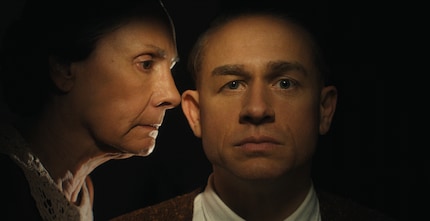
I’m not saying that I relate to him, nor do I think his actions were justified or in any way excusable. But I’m starting to understand his daemons – or, at least, I think I am. The horror is given an origin, the monster a face. And that’s where the moral friction takes root.
Charlie Hunnam, the actor who plays Gein in the Netflix series, recently described the «tightrope walk» between trying to find Gein’s humanity and being careful not to trivialise his crimes. He initially «fell into a panic» after accepting the role, fearing that there might be «no coming back» from it. Empathy, he explained, is essential when playing a character like Gein – «but not too much».
The creators of the show are taking the same line. In an interview with Variety, co-creator Ian Brennan said the series was more of a scientific «Homo sapiens-izing» of Gein than a glamorised humanisation of him. Director Max Winkler also makes a clear distinction, stating that a perpetrator may be glamorous, but «they’re monsters because of what they did».
Hmm. So, why do we still empathise with them?
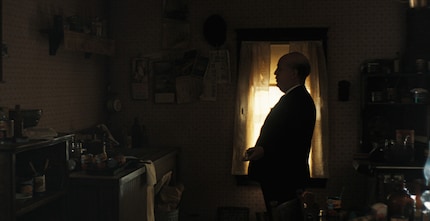
Empathy, as psychological studies show, has two sides to it. It can sensitise people or incapacitate them. Educate them or manipulate them. When it comes to violence and psychopathy, the literature distinguishes between cognitive and emotional empathy, and demonstrates that empathy shifts depending on the context and person.
In the hands of a talented director, empathy becomes a tool. It forces us to take a benevolent look at things we’d ordinarily turn away from in disgust. That’s partly what gives true crime its appeal.
The former president of the American Psychological Association, Dr Thema Bryant, suggests an alternative explanation. Back in 2023 – well before Netflix released the Ed Gein series – she mentioned our fascination with true crime during a podcast appearance. «If your idea of relaxing before you go to sleep is watching three episodes of Law and Order,» she says, «I’d encourage you to think about ‘why is trauma relaxing to me?’»
Bryant was initially making a general statement about pop culture and how we deal with violence. Two years later, however, Boulevard and Social Media quoted her in an article specifically about The Ed Gein Story. Her theory evidently hits a nerve – many people consume violence not in spite of their discomfort, but because of it.
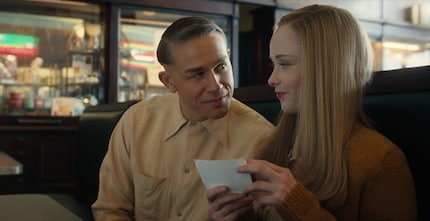
Dr Elizabeth Jeglic, Professor of Clinical Psychology at John Jay College of Criminal Justice, gives another psychological perspective on this. In an article on CrimeReads in 2021, she explained there was no scientific evidence that survivors of sexual violence consumed true crime content more frequently than other people. Many survivors avoid it because of its potentially retraumatising impact.
At the same time, some survivors feel drawn to true crime stories. Jeglic says they sometimes use the genre to seek out stories of victims who fight back – as a way of silently healing from their own experiences of powerlessness. Others, she says, may be trying to «re-experience traumatic situations in a safe environment where they have more control».
True crime, she says, can act as a kind of psychological exposure therapy for some people. They get to watch, study and understand evil without really being at its mercy – safely from their sofa.
Empathy and control. Do these factors alone explain our fascination with true crime and violence? Showrunner Ryan Murphy certainly isn’t letting us viewers get off that easily: «The most interesting layer was turning the camera on ourselves,» he says in the Variety interview. «Every generation creates their own bogeyman – and every generation has to up the stakes of violence, because you become inured to it.»
It’s a bold statement. But he isn’t wrong.
In fact, studies have demonstrated that our perception of violence shifts over time. The more often we see depictions of violence, be it in true crime, news or fiction, the less intensely we react to them. Psychologists call this desensitisation, a phenomenon whereby the brain becomes used to stimuli that should actually alarm it. One concept related to this is cultivation theory, which stipulates that people who regularly consume violent media often overestimate how dangerous the real world is.
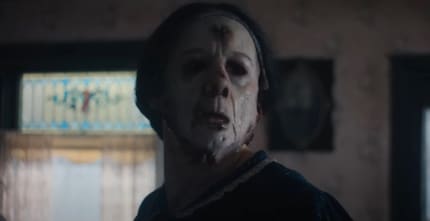
So when millions of people watch, spellbound, as Charlie Hunnam portrays Ed Gein talking about his crimes, it stops being about him – and starts to be about us. As for the question of why on-screen evil holds such a magnetic appeal, even though – or precisely because – it repels us? Describing the way the show turned the camera back on the audience, co-creator Ian Brennan says: «Oh, look, we’re doing the same thing. We’re obsessed with this guy.»
This is the truly taboo-breaking element of the series. On the one hand, we see the twisted expression of a murderer, on the other, we see our own curiosity. We shudder because although we know we shouldn’t look, we still want to. The series holds a mirror up to that morbid fascination when Ed Gein looks straight into the camera says, in his childlike voice:
«You’re the one who can’t look away.»
I don’t think we watch series like this to see monsters. We watch them to reassure ourselves that we aren’t like them. That we’d recognise evil if we came across it. That we’d never become as lost as the people we judge on screen. And yet, these very series prove that we’re fascinated by evil – provided we’re confronted with it from a safe distance.
And as long as the daemons we’re seeing don’t resemble our own.
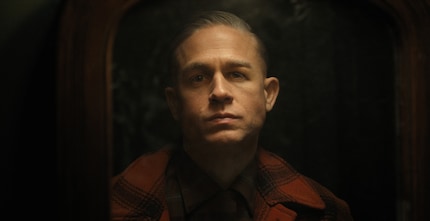
What we’re left with is an ambivalent feeling: disgust and empathy, fear and fascination. Inseparably intertwined with one another. And that’s exactly where the truth of stories like these lie. They don’t just confront us with what Ed Gein did – they also show us what we too would be capable of if the boundaries between pain, power and humanity became blurred.
Personally, I’ll probably continue to peer straight into that abyss. Until I’m forced to ask myself the most uncomfortable question of all: do we really need these series to understand what turns people into monsters? Or is it the series that need us, the audience, to legitimise their existence in the first place?
Let me know what you think in the comments.
I write about technology as if it were cinema, and about films as if they were real life. Between bits and blockbusters, I’m after stories that move people, not just generate clicks. And yes – sometimes I listen to film scores louder than I probably should.
This is a subjective opinion of the editorial team. It doesn't necessarily reflect the position of the company.
Show all